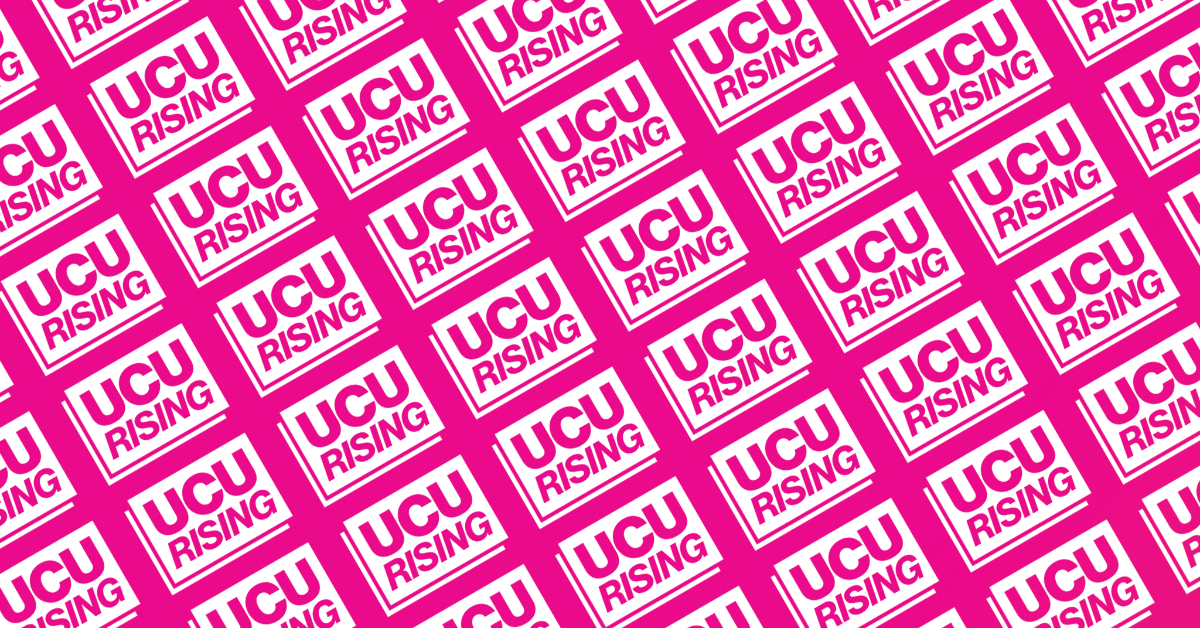
Use spare cash and scrap vanity projects to invest in university staff, UCU says
22 August 2022
- UK universities generating record income - £41.1bn
- Universities finish 2020/21 with £3.4bn more cash in the bank than year before
- Vice-chancellors planning £4.6bn splurge on 'vanity projects' as staff pay falls 25%
Universities across the UK are generating billions of pounds in spare cash and planning huge increases in capital spending, the UCU revealed today.
By analysing financial data from each higher education institution in the UK, UCU has been able to identify the scale of cash being hoarded by universities and the 'eye watering' amounts that the sector is planning to spend on new buildings.
Today, UCU says the sector must rethink its priorities and use its surpluses and the money saved from scrapping 'needless vanity projects' to raise staff pay to help them through the cost of living crisis.
In 2020/21, the most recent financial year, universities finished with £3.4bn more cash in the bank than they started it with.
University leaders also confirmed to regulator the Office for Students (OfS) that they were planning to increase overall capital expenditure by 36% this year, to £4.6bn.
UCU says the billions in spare cash is generated from core operations, such as teaching, administration and research, and must therefore be reinvested into staff. The union has also called for a portion of the planned capital expenditure to be diverted to raise pay, bring staff onto permanent contracts and restore pension benefits.
UCU is set to open a national industrial ballot in early September over pay, working conditions and cuts to pensions. The union says the employers can avoid unprecedented industrial action by prioritising investment in staff.
The call comes as UCU reveals that despite universities' sound financial performance, spending on staff increased by just £200m during 2020/21.
Meanwhile, the numbers of students and overall tuition fee income continues to increase year on year. UCU says staff are being asked to teach or support more students and work harder - for lower rewards. In 2020/21, universities generated record levels of income from tuition fees and other sources, hitting £41.1bn, up from £39.6bn in 2019/20.
UK universities made a pay offer of just 3% this year, representing another real-terms pay cut as RPI inflation hits 12.3%. This follows over a decade of low pay awards which puts staff pay 25% behind inflation. The employers' offer would cost just £0.66bn to implement across all universities and UCU says this can and should be increased significantly.
UCU has also revealed the extent to which larger universities are hoarding wealth. The combined surplus of the universities of Cambridge and Oxford in 2020/21 was £1.7bn. This amount alone, UCU says, could deliver a pay rise of 7.9% for staff across all UK universities.
Vanity projects
The planned 36% increase in capital expenditure has been described by UCU as 'inconceivable and insulting' as staff pay continues to fall and around 90,000 university staff remain employed on short-term, insecure contracts.
Wasteful university spending on buildings and other projects have received regular criticism across the sector.
In April this year, the University of Birmingham opened up a new Dubai campus which involved signing a reported £100m contract with Tecom, a subsidiary of Dubai Holding, which is majority owned by the emirate's ruler, Sheikh Mohammed bin Rashid Al Maktoum. At the university's other campus in Dubai, guidance was issued advising that staff should hide their sexuality.
In February this year, it was revealed that in eight years just 100 students had graduated from a New York campus of Glasgow Caledonian University. Glasgow Caledonian has paid £21.4m in loans to the offshoot to keep the campus open.
In 2020, the University of Chester was given 12 months to close down a campus which was built next to an oil refinery. It was closed after it was revealed the university did not apply for planning permission and the Health and Safety Executive warned it was a danger to students' and staff health.
In 2019, a British university branch campus, the University of Reading Malaysia, was forced to halve its staff and close some programmes after spending £27 million setting up and operating the university between 2011 and 2019, accumulating losses of over £20 million.
UCU general secretary Jo Grady, said: 'Our analysis shows clear as day that the university sector is not only hoarding billions of pounds in cash, but also planning an eye watering spending spree on shiny new vanity projects - all whilst holding down staff pay, cutting pensions and plunging thousands into hardship in a cost of living crisis. It is inconceivable and insulting.
'Universities generate their income because of staff who deliver excellent teaching, effective administration and produce world-class research. It is beyond unacceptable for employers to then cream extra cash off the top of their hard work and then plead poverty.
'It is time the university sector reassessed its priorities. Does it want an exhausted workforce, barely able to make ends meet? Or does it want to invest in the people that make a higher education what it is? Investment in staff is investment in students, and vice chancellors need to wake up to that fact.
'Falling pay, devastating cuts to pension and insecure contracts are not a fact of nature but the consequences of spending decisions made by vice chancellors. University staff are clear that they have had enough and unless urgent action is taken to raise pay, restore pensions and address their wider concerns, they will be voting to take strike action this autumn.'
- PrintPrint this page
- Share


